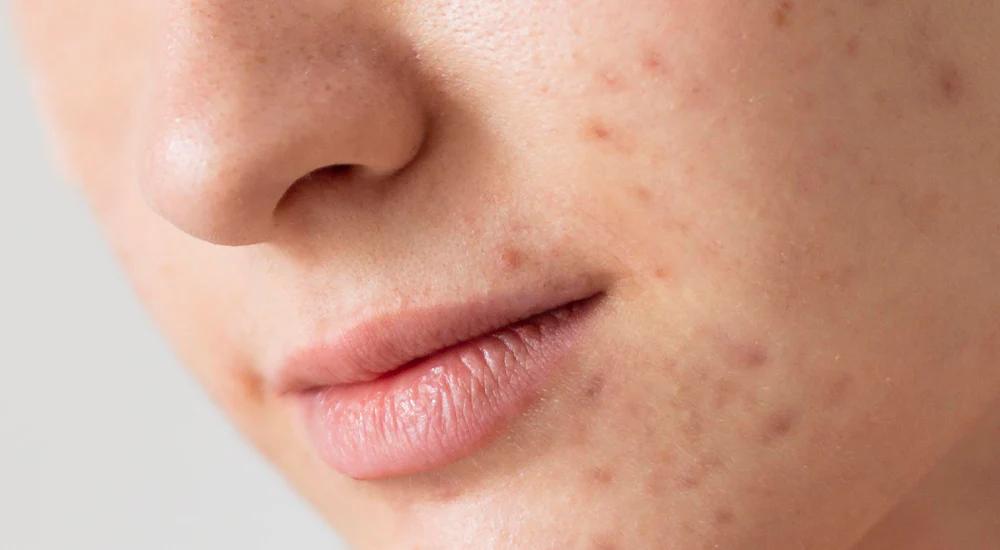novellainstitute.com – Dealing with acne-prone skin can be frustrating, but the right skincare routine can make a world of difference. Managing acne requires a balance of addressing existing breakouts, preventing new ones, and maintaining overall skin health. Here’s a recommended skincare routine tailored for acne-prone skin, focusing on gentle yet effective care.
1. Morning Routine
Step 1: Gentle Cleanser
Start your day by washing your face with a gentle, non-comedogenic cleanser. Look for ingredients like salicylic acid or benzoyl peroxide to help unclog pores and reduce inflammation.
Recommended Ingredients:
- Salicylic Acid: Exfoliates inside pores to prevent clogging.
- Benzoyl Peroxide: Targets acne-causing bacteria.
Example Products:
- Gel-based or foam cleansers specifically formulated for oily or acne-prone skin.
Step 2: Hydrating Toner
Use a hydrating, alcohol-free toner to balance your skin’s pH and prepare it for subsequent steps. Avoid harsh, astringent toners that can strip the skin of moisture.
Recommended Ingredients:
- Niacinamide: Soothes inflammation and controls excess oil.
- Aloe Vera: Calms irritated skin.
Step 3: Lightweight Moisturizer
Hydration is essential, even for oily or acne-prone skin. Opt for a lightweight, oil-free moisturizer that won’t clog pores.
Recommended Ingredients:
- Hyaluronic Acid: Retains moisture without feeling greasy.
- Ceramides: Strengthen the skin barrier.
Step 4: Sunscreen
Sunscreen is crucial for protecting acne-prone skin from harmful UV rays and preventing post-acne hyperpigmentation. Use a broad-spectrum SPF 30 or higher, preferably a non-comedogenic, lightweight formula.
Recommended Ingredients:
- Zinc Oxide or Titanium Dioxide: Gentle mineral filters for sensitive or acne-prone skin.
2. Evening Routine
Step 1: Double Cleansing (Optional)
If you wear makeup or sunscreen during the day, start with an oil-based cleanser to remove impurities. Follow up with your regular cleanser to ensure all residue is washed away.
Step 2: Treatment Cleanser
Use the same salicylic acid or benzoyl peroxide cleanser as in the morning to target breakouts and clear your pores.
Step 3: Treatment Serum or Spot Treatment
Introduce active ingredients to treat acne more effectively. Apply a thin layer to affected areas or all over the face, depending on the product.
Recommended Ingredients:
- Retinoids (Adapalene, Retinol): Promotes cell turnover to prevent clogged pores.
- Azelaic Acid: Reduces redness and acne-causing bacteria.
- Tea Tree Oil: A natural alternative with antibacterial properties.
Step 4: Moisturizer
Reapply your lightweight moisturizer to maintain hydration overnight. Nighttime is when your skin repairs itself, so a good moisturizer can aid this process.
3. Weekly Additions
Exfoliation (1-2 Times a Week)
Gentle exfoliation helps remove dead skin cells and prevents clogged pores. Avoid physical scrubs that can irritate acne-prone skin; instead, use chemical exfoliants.
Recommended Ingredients:
- AHA (Glycolic Acid): Improves skin texture and targets dark spots.
- BHA (Salicylic Acid): Focuses on deep-cleaning pores.
Clay Masks
Once a week, use a clay mask to draw out impurities and reduce excess oil.
Recommended Ingredients:
- Kaolin or Bentonite Clay: Absorbs oil without over-drying the skin.
Tips for Managing Acne-Prone Skin
- Avoid Overwashing: Washing your face more than twice a day can strip your skin of natural oils, causing more irritation and breakouts.
- Don’t Pick or Pop Pimples: This can lead to scarring and worsen inflammation.
- Use Non-Comedogenic Products: Check for products labeled “non-comedogenic” to avoid clogging your pores.
- Patch Test New Products: Always test new skincare products on a small area to ensure they don’t irritate your skin.
- Maintain a Healthy Lifestyle: Stay hydrated, follow a balanced diet, and manage stress to support your skin’s health from within.
When to See a Dermatologist
If over-the-counter routines and products don’t show improvement after a few months, or if your acne is severe, consult a dermatologist. They can prescribe treatments such as:
- Oral or topical antibiotics.
- Hormonal treatments (for hormonal acne).
- Prescription-strength retinoids or isotretinoin.
Conclusion
A consistent skincare routine tailored to acne-prone skin can significantly improve its condition. By using gentle yet effective products and addressing the underlying causes of acne, you can achieve clearer, healthier skin. Remember, patience is key—most routines take a few weeks to show results, so stick with it and trust the process.




